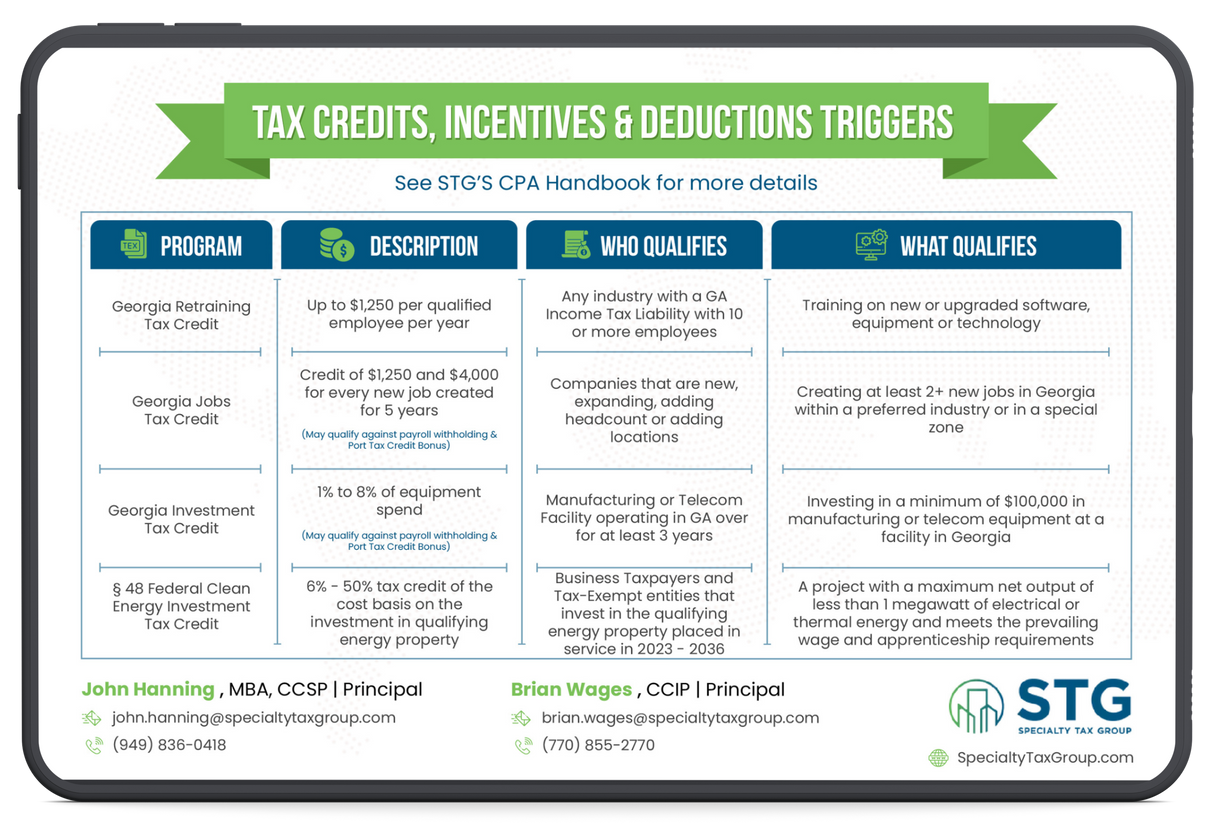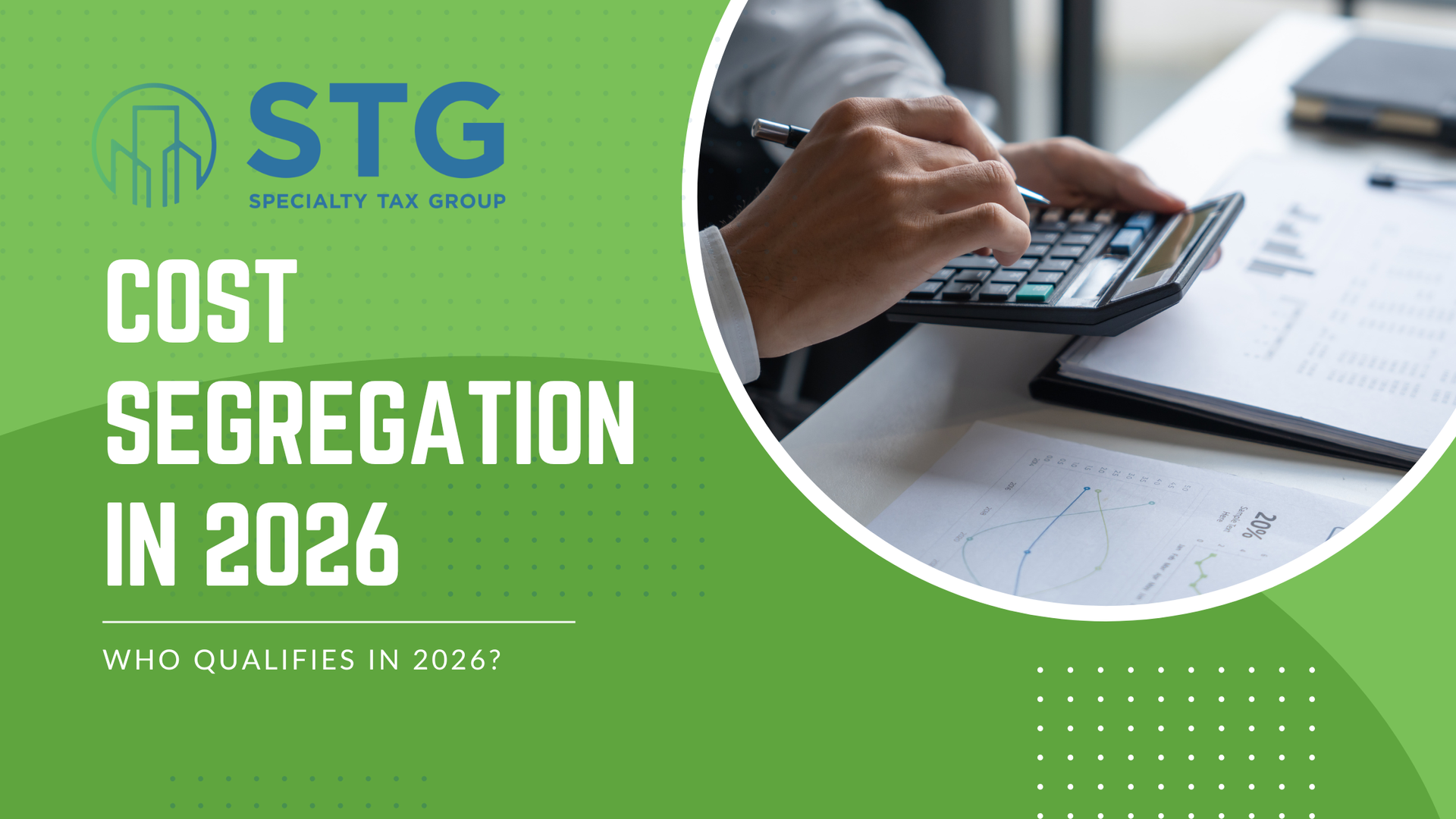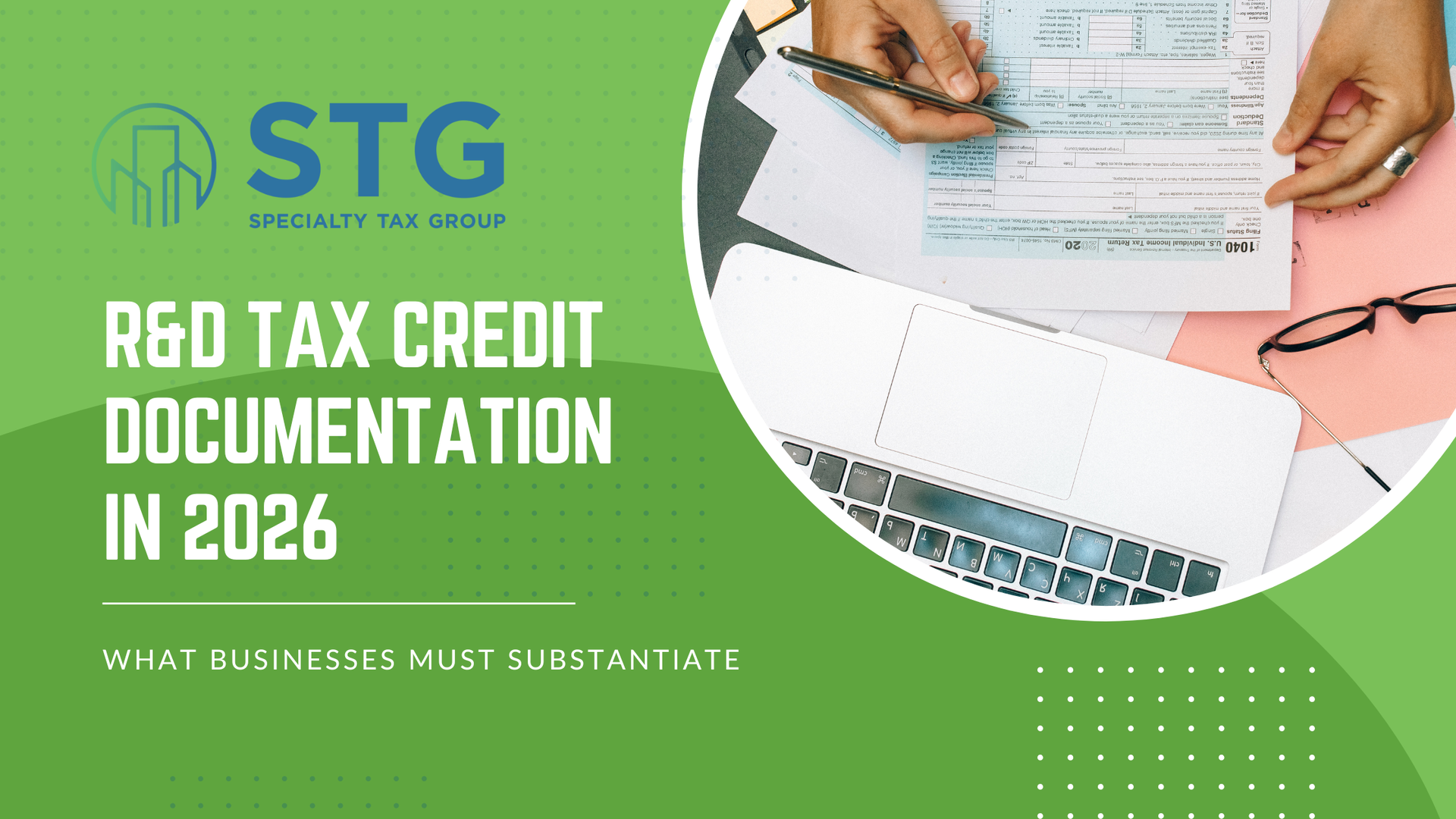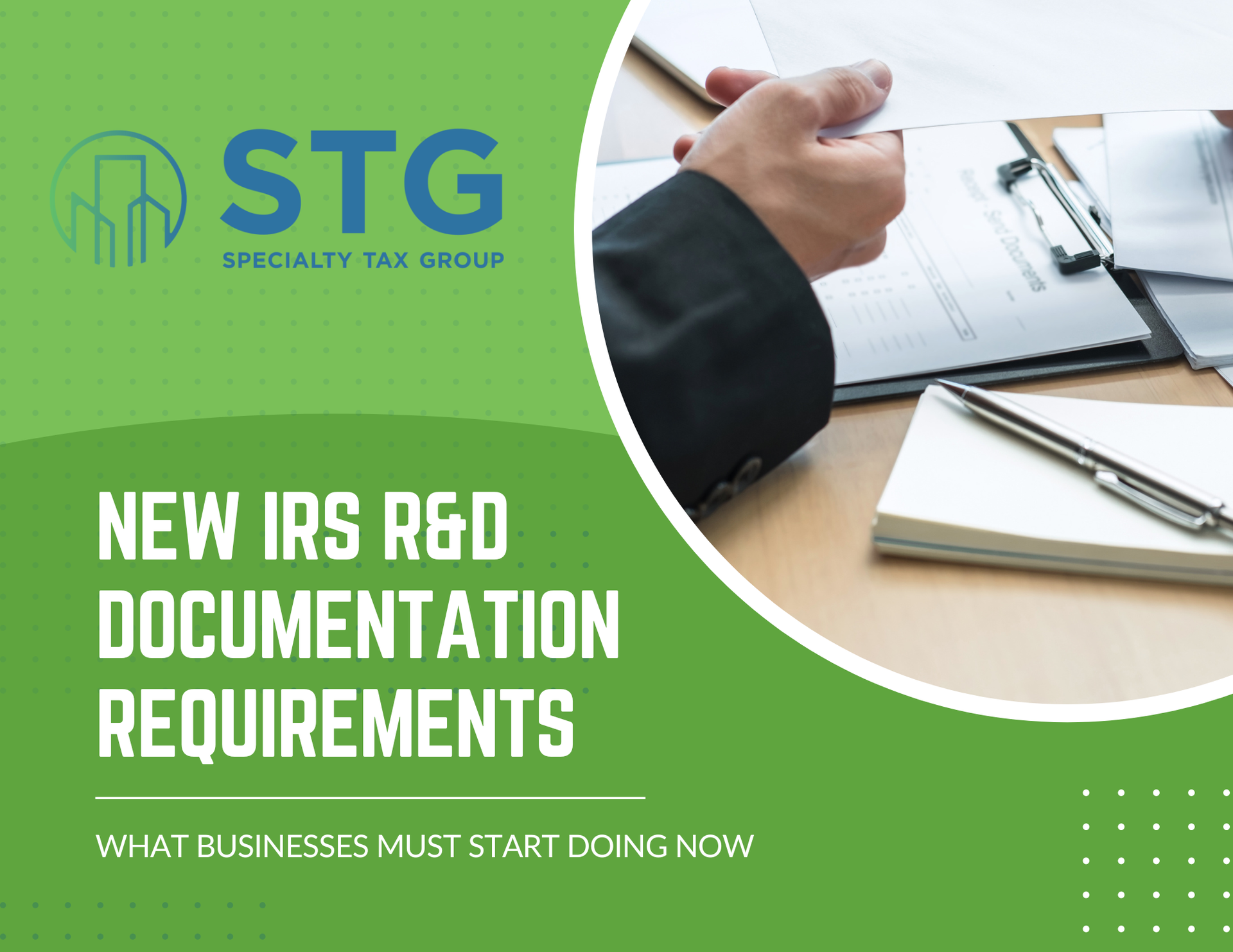This blog post has been researched, edited, and approved by John Hanning and Brian Wages. Join our newsletter below.
What are Georgia Jobs Tax Credits, and How Does My Company Qualify?

The state of Georgia created the Jobs Tax Credit (JTC) program to incentivize companies to create and retain jobs in order to boost the economy across the state. The Jobs Tax Credit can lower businesses' corporate tax liability and, in certain cases, payroll withholding obligations.
Credit Amounts and Job Creation Requirements
Credits for qualified companies range from $750 to $3,500 per year, depending on the location of the new jobs. Each year every county in Georgia is ranked and divided into four tiers based on unemployment rates, per capita income, and poverty rates. The counties with the most economic distress are assigned a lower tier and earn the highest credit amount per new job.
Tier 1: $3,500 per net new job (NNJ), requiring a minimum increase of 5 NNJ.
Tier 2: $2,500 per NNJ, with a minimum increase of 10 NNJ.
Tier 3: $1,250 per NNJ, requiring at least 15 NNJ.
Tier 4: $750 per NNJ, with a minimum increase of 25 NNJ.
Special designations such as Less Developed Census Tracts, Military Zones, and Opportunity Zones are treated as Tier 1 for the purposes of the Jobs Tax Credit. Opportunity Zone businesses must meet all Opportunity Zone certification requirements.
Tiers and Zones
Georgia counties are annually designated into four tiers based on economic-related conditions, with Tier 1 being the least developed and Tier 4 the most developed. Special zones include Less Developed Census Tracts, Military Zones, and Opportunity Zones, which offer enhanced credit opportunities.
Eligible Industries
The program is available to businesses in various sectors, including manufacturing, warehousing and distribution, processing, telecommunications, broadcasting, tourism, research and development, services for the elderly and persons with disabilities, and life science manufacturers engaged in producing personal protective equipment (PPE) or hand sanitizer. Retail businesses are generally not eligible, except in the 40 least developed counties. A $1,250 bonus per NNJ is available for life science manufacturers engaged in manufacturing PPE or hand sanitizer, for tax years beginning January 1, 2021.
The credit may be used to offset up to 50% of Georgia income tax liability, with unused credits carrying forward for up to 10 years. Additionally, a $500 per NNJ bonus is available for businesses located in a Joint Development Authority.





